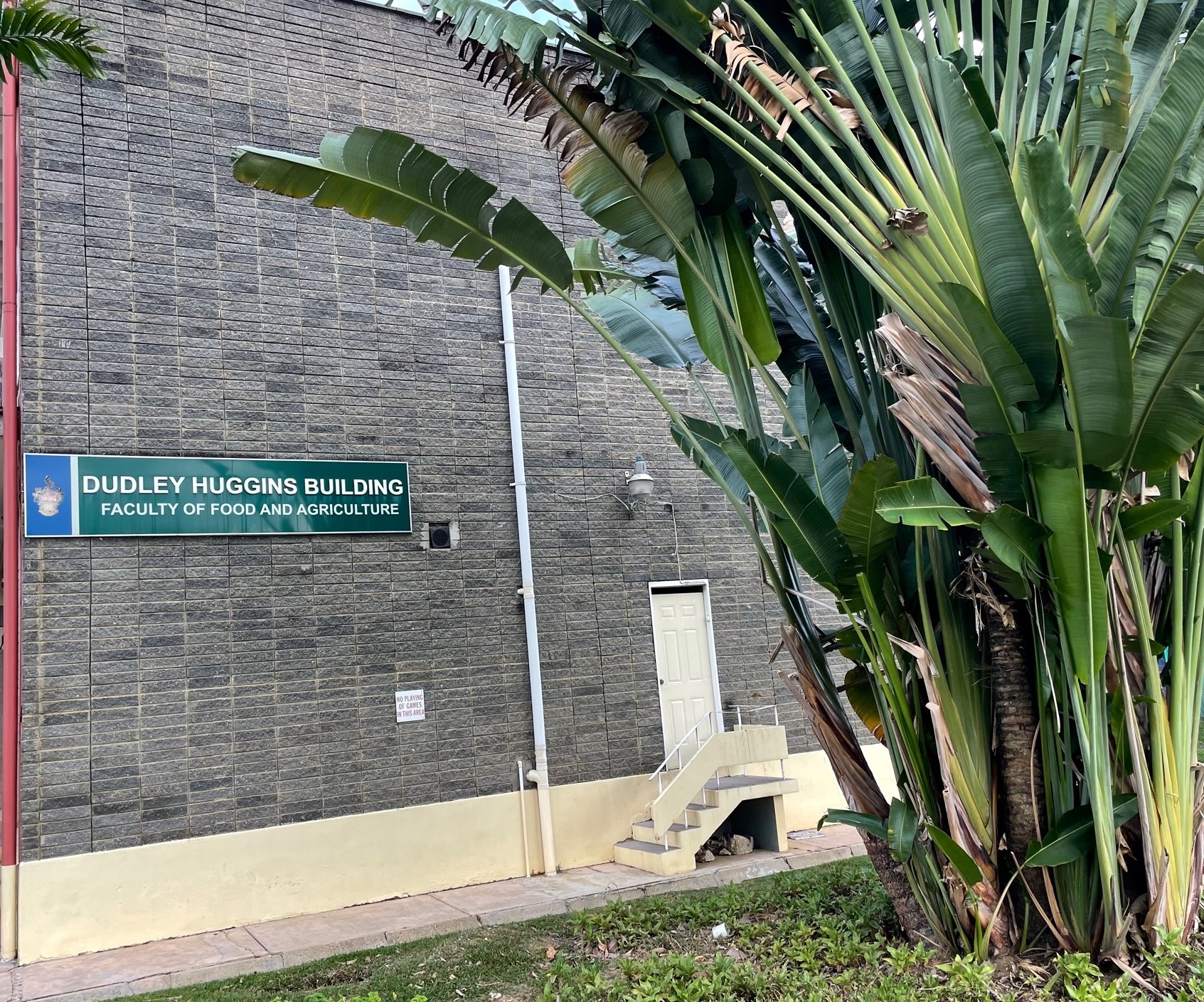

The University of the West Indies, in rising to the challenges of continual transformation of the Caribbean agriculture sector, and in the face of the changing global socio-economic environment, has recognized the need for a shift in focus to attain and maintain food security within the region.
Moreover, the important contribution of food and agriculture to the health and well-being of Caribbean people, within a safe physical environment, is a major objective that is supported through the Faculty of Food and Agriculture at the St Augustine Campus.
As the University strives to support the building of healthier communities, it is imperative that we not lose the ability to retain traditional, agricultural commodities, while offering new products to meet the changing tastes for food(s) through the regional diversification efforts currently taking place. The Department of Agricultural Economics and Extension (DAEE) concentrates its activities in agricultural economics, agricultural extension, communications and outreach, human nutrition and dietetics, consumer sciences, agribusiness, foodservice management and business services.
The DAEE considers itself a unit that can successfully help in the improvement of Caribbean health and nutrition, and the development of economic, environmental and agricultural policies at the national and regional levels.
DAEE seeks to be the major provider of knowledge and competencies for enhanced well-being of the Caribbean in the core disciplines of Human Ecology, Agricultural Economics, and Agricultural Extension by 2024.
The DAEE works towards building a multidisciplinary knowledge platform for sustainable management of regional economies and livelihoods by engaging relevant communities and providing quality innovative teaching enhanced learning opportunities, and conducting cutting edge research.
This is to be achieved by:-
• Providing access to relevant academic programmes that are effectively delivered, thereby enabling students to have a broader frame of reference for specialised knowledge.
• Fostering ethical and intellectual development through critical thinking, creativity and self-actualisation, thereby enabling students to respond to an ever-changing, socio-economic environment in a responsible manner.
Engaging in research activities in our core areas of competencies geared to:
1. exploring solutions to priority national and regional problems and challenges
2. expanding the knowledge base and
3. expanding the human resource capacity.
• Integrating the findings of research into our everyday teaching in the classroom.
• Effectively disseminating relevant information to the population.
• Promoting inter-disciplinary teaching and research collaborations.
• Fostering collaborations with stakeholders, as evidenced by internships, invited presentation, research, etc.
• Fostering an intellectual environment that can attract academic staff and students of high quality and in which ideas contend vigorously.
• Developing the learning environment in a manner that allows students to relate their knowledge to complex situations in the workplace or the world.
• The provision of a high degree of choice among very strong programmes, so to ensure cross-disciplinary learning.
• Fostering the process of inquiry-based learning and knowledge creation.
• It is against this backdrop that we continue to review our curricula and upgrade our programmes and courses.
These changes will allow our graduates to develop depth and breadth of knowledge, specific subject content, analytical and communication skills and ethics that will enable them to effectively problem-solve in the real world, and act in a manner that is consistent with good ethics.
The Department's focus areas for teaching and research are as follows:-
• Food and Nutritional Security
• Agricultural Economics
• Agricultural Extension
• Agribusiness Management, Entrepreneurship
• Nutrition, Health and Wellness
• Consumer Sciences